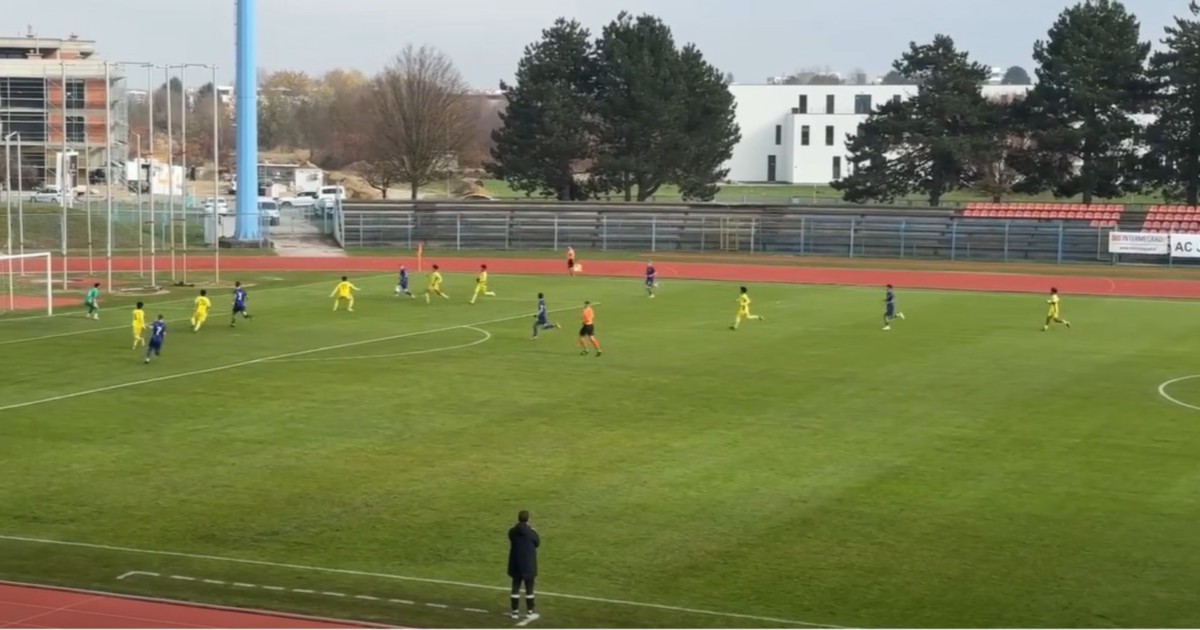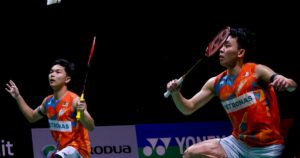> Chan Wai Kong_NST Sports:
* please publish, highlight, do engagement, segment push and all
engagement headings
1 Talent we have, football brain we don’t have
2 A shocking 11-0 defeat underlines the sick state of Malaysian football
3 Japan preparing for World Cup final, Malaysia preparing another explanation
KW: football, badminton, sports, Malaysia, Dollah Salleh, Croatia, Cristiano Ronaldo, World Cup, Japan, Asian Champions League, Kenneth Jonassen, Mokhtar Dahari, NFDP, FAM, FIFA, J1 League
HL
THE scoreboard in Croatia last week said it all — Malaysia 0 Croatia 11.
But the real scoreline runs like this: Malaysia 0, Japan 20 years ahead.
Football legend Datuk Dollah Salleh may be keeping his cool after the national Under-16 side were torn apart by Croatia, but there’s no escaping what that result really tells us.
It wasn’t just a bad day at the office, it was a harsh reminder of where Malaysian football truly stands.
The Croatians made Malaysia look like kindergarten kids. They out-thought us at every turn — every pass, every run, every press came with purpose.
Our players, meanwhile, looked like they were still waiting for the coach’s next instruction.
That’s Malaysian sport in a nutshell — plenty of effort, very little intelligence.
At the national badminton camp, coaching director Kenneth Jonassen is preaching a message every Malaysian coach should frame above their desk: “I want players who can think on court, solve problems, and stay focused.”
It’s a line meant for shuttlers, but it applies perfectly to football.
The problem isn’t talent, it’s thought. For too long, we’ve trained athletes to follow orders instead of making decisions.
Our systems reward obedience, not understanding. The moment the whistle blows and the coach isn’t shouting from the sidelines, the players freeze — different sport, same problem.
Look at Japan. They started their football revolution in the 1990s — not with a press release, but with a plan.
A 100-year vision to make football part of their DNA.
They built from the ground up, investing in coaches, schools and analytics.
They didn’t panic after every defeat or sack coaches every six months. They stayed patient.
Now, Japan are not just talking about qualifying for the World Cup — they’re targeting the final next year.
Recently, a video of Japanese youth players mimicking Cristiano Ronaldo’s skills went viral — flawless technique, perfect execution. It left fans stunned.
A former FA of Malaysia (FAM) official, after watching the video, admitted that none of our top youth footballers could do the same.
It makes you wonder what our boys are being taught at the Mokhtar Dahari Academy, the National Football Development Programme (NFDP) centres, and state FA and club academies across the country.
Japan’s youth teams regularly beat Europe’s best. Their players are calm, technical, intelligent. They’ve been trained to think.
They understand tempo, space, transition — all the things Malaysian teams struggle to grasp. That’s what three decades of planning gives you.
Just look at Japan’s J1 League — a system built to develop players, not collect stars. The league acts as a transit point, preparing talent for Europe.
Even in the Asian Champions League, where clubs can field as many foreigners as they like, Japanese teams don’t take advantage.
They want local players to learn under pressure because Japan’s real ambition is producing world-class players capable of winning the World Cup one day.
Meanwhile, Malaysia are still reeling from an 11-0 friendly defeat and trying to explain why our football is in disarray while FIFA sanctions hang over our heads.
Japan are preparing for the future. We’re preparing paperwork.
The painful part is that our kids aren’t lacking talent. Watch any local tournament and you’ll see flair, creativity, passion. But that spark gets drilled out of them as they climb the system.
They’re told where to pass, when to shoot, how to run and heaven forbid they try anything different.
By the time they reach the national setup, they’ve stopped thinking altogether. They’re waiting for orders — just like the system that created them.
Jonassen’s “thinking athlete” philosophy should be Malaysia’s sporting mantra.
It’s not about fancy tactics or expensive trips abroad. It’s about producing players who can read the game, adapt, and stay composed when the plan falls apart.
Because the plan always falls apart. The smart ones improvise. The rest collapse.
Japan’s rise didn’t happen overnight. After being humiliated at the 1998 World Cup, they drew up a better plan. They saw failure as feedback, not finality.
Malaysia, after an 11-0 defeat, will likely draw up another internal report. Maybe a committee. Maybe a workshop.
That’s the difference. Japan learn. We move on.
So when you look at that Croatia scoreline, don’t just see an 11-0. See the gap between planning and pretending — between teaching kids to think and teaching them to follow.
Japan are preparing for a World Cup final. We’re preparing another explanation.
And that, right there, is the real 11-0.
* Ajitpal Singh is the Sports Editor of NST
© New Straits Times Press (M) Bhd






